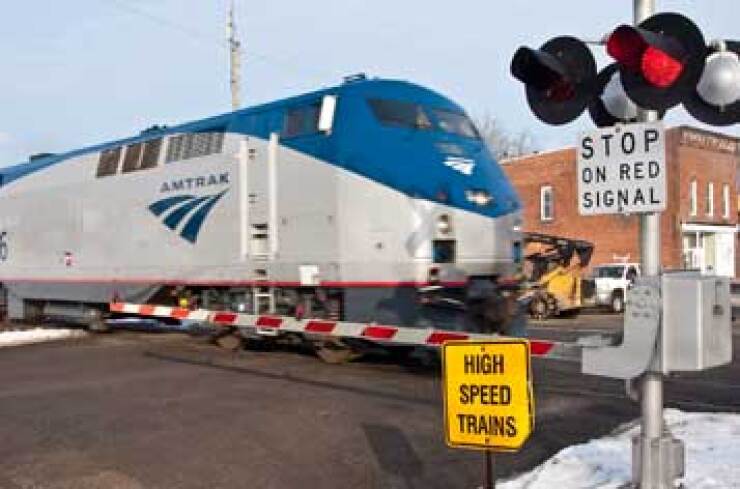
DALLAS — A proposed $3 billion intercity rapid passenger rail system would cut the more than five hour trip between Chicago to Detroit by almost two hours.
Ten trains a day would run at speeds up to 110 mph along the 300-mile inter-city corridor now served by Amtrak's Wolverine service, according to a preliminary route map. The project's preliminary environmental impact statement was unveiled this week at public hearings in Chicago, Gary, Ind., and Dearborn, Mich.
Partners in the initial study for the rail project include the Federal Railroad Administration and state transportation departments in Michigan, Illinois, and Indiana. The Michigan Department of Transportation developed the initial environmental study and is the lead state agency.
The train engines would be diesel powered rather than the electric models favored for higher speed rail projects. Sponsors said the lower speed, significantly less than the 200 mph pace proposed for bullet train projects in Texas and California, means the Midwest project can be built quicker and cheaper.
Dennis Hodges, a spokesman for the Indiana Passenger Rail Alliance, said it would cost too much to build an entirely new track system that could accommodate high speed bullet trains. Ridership increases only slowly on systems running at more than 110 mph, while construction and operating costs increase dramatically for trains capable of speeds in excess of 150 mph, he said.
Fares on the fast train will be competitive with airline tickets because the diesel trains can use much of the existing track and station infrastructure in the corridor, Hodges said.
"Rail needs to be part of the transportation mix in Indiana and the Midwest," he said.
Travel time between the two cities would be cut from the currently scheduled 5 hours and 38 minutes to 3 hours, 46 minutes, according to the draft study.
The Wolverine line has one of Amtrak's worst on-time records due to heavy traffic on the mostly freight rail corridor. Monthly on-time rates ranged from only 21.5% to 39% for the Wolverine over the past 12 months, Amtrak said.
The three states have received more than $600 million of federal grants for projects to improve passenger rail service in the existing corridor, but no funding source has been identified for the intercity system.
The Chicago-to-Detroit proposal received a $3.2 million federal planning grant from the 2009 stimulus program, with $800,000 in matching funds from the states.
Total cost for the new fast rail system ranges from $2.4 billion to $2.98 billion, depending on which of several route and service options is finally selected. The states would have to provide a 20% match for federal grants to the project.
Annual maintenance and operation costs for the 300-mile system would total almost $160 million by 2035. Ridership by then would total 2.8 million passengers a year with system revenues of $162 million.





